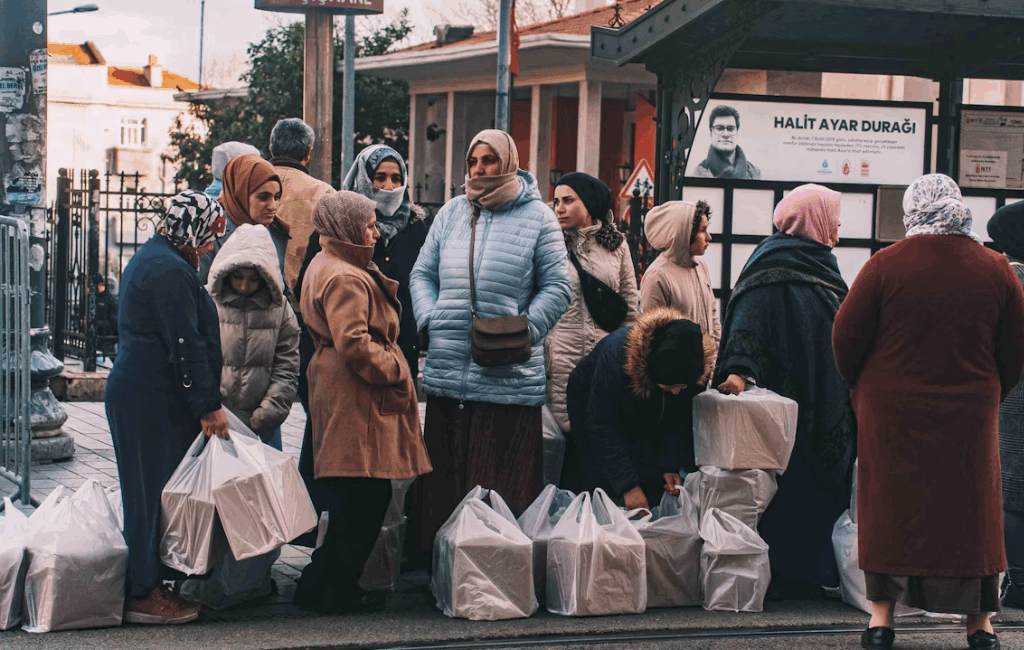
RESEARCH EXCHANGE
Why some migration narratives are successful
Author
About
Blanca Garcés Mascareñas
migration communication
Interpretations are what determine responses much more than raw facts
This is especially true in migration, where narratives can sway public opinion and influence policy. To understand how facts turn into narratives and narratives turn into individual and collective responses, we at BRIDGES examined under what conditions narratives become more successful, compelling or enduring.
In this short, we share our findings about the crucial elements of the success of these narratives and some practical steps you can take if you want to improve your ability to influence narratives.
The ‘what,’ ‘who,’ ‘where’ and ‘when’ of successful narratives
What: Successful narratives resonate with people’s feelings
Our research shows that successful narratives should resonate with individuals’ emotions and feelings. Using experimental methodologies, we found that personal testimonies have a strong capacity to influence how we feel and think about immigration.
Stories of immigrants suffering discrimination or overcoming various adversities have the power to produce identification and empathy, thereby changing individual attitudes and behaviours. For instance, a story that shows clear examples of discrimination and victimisation can make you intensely angry while also increasing your empathy for the person suffering these injustices. Similarly, a story of heroism and overcoming adversity can make you feel moved and in awe.
Successful narratives should also meet certain basic conditions of consistency in line with individual empirical knowledge and widely shared local and cultural perceptions. For example, we found that EU-funded information campaigns in Gambia and Turkey had little ability to influence potential migrants’ decisions to migrate. This results from the mismatch between information campaign narratives and dominant local narratives. More concretely, we found that the experiences shared by friends and relatives who lived in or had migrated to Europe had much more influence on people’s decision to migrate than counter-arguments presented by EU-funded campaigns aimed at dissuading them.
Who: The messenger matters
Our analysis found that immigrants or people on the move rarely find themselves as narrators. Instead, politicians are the primary messengers of narratives. And not simply all politicians; we found that extreme-right politicians are particularly successful in disseminating migration narratives through both traditional and social media, given their communication apparatus, funding, message coherence and events creation. This contrasts with the strategies of other more pro-immigration politicians, who may remain silent on issues related to migration (which is often perceived as an uncomfortable subject) or have a purely reactive response. Journalists are also trapped between the need to attract public attention (and in the digital era, as many clicks as possible) and the unintended effect of amplifying the voice of the most controversial politicians.
When: Right place, right time
‘
Windows of opportunities’ are critical factors in a narrative’s success. For instance, a perceived “crisis” or a discussion around a new law can potentially lead to new and transformative narratives or can reinforce existing ones.
When windows of opportunity present themselves, it is critical for actors (anyone wishing to put forward a new narrative) to respond quickly. Because of limited capacities, resources and funding, actors have the threat of “fizzing out” after initial successes or once their initial window of opportunity closes. In certain situations, a political party’s reluctance to engage in debates can hinder its ability to promote its narratives effectively. In all cases, our research found that narrative success depends on actors’ capacity to respond to time-sensitive opportunities.
Where: Politicisation and media narratives
A key question is how successful narratives travel from one sphere to the other, for instance between media, political debate and policymaking. Politicisation, understood as salience and polarization around an issue, plays an important role. Interestingly, we found out that the more an issue is politicised, the more political discourse shapes and is shaped by media narratives.
Our research also confirms that social media is indeed a politically polarising space. Irrespective of whether a message is anti- or pro-immigration, algorithms favour messages that create strong reactions. But social media do not seem to introduce new narratives but rather amplify already existing messages from traditional media narratives.
Want to improve your ability to influence migration narratives? Here are three things you can do
- Include migrants as narrators: Including their voices and perspectives, beyond stereotypical narratives portraying them as victims, is key to producing empathy and identification while overcoming discourses based on a distinction between “Us” and “Them”.
- Address discomfort and fear: Ignoring or denying particular social discomforts related to immigration – regarding unequal access to welfare provisions or the labour market, for example – may leave a void in public debate that can be easily filled by extreme-right populist narratives. Remaining silent or implicitly accepting the assumptions of an opposing narrative is the best receipt for “our” failure and “their” success.
- Acknowledge complexities: Limiting the debate to binary discussions (such as migration: yes or no) and using arguments exclusively based on cultural differences) does not help to explain the complexities surrounding the phenomenon of immigration.
Blanca Garcés-Mascareñas is PI and scientific coordinator of the BRIDGES project and senior researcher at the Barcelona Centre for International Affairs (CIDOB).
Learn more:
- BRIDGES key findings – Assessing the production and impact of migration narratives
- Comparative analysis – the impact of narratives on policymaking at the national level.
- Policy brief – the impact of narratives on policymaking at the national level.
- Policy brief – the impact of narratives in potential migrants’ decisions: a Policy Brief.
Submit your idea for a ‘short’ to be featured on the Co-Lab.












